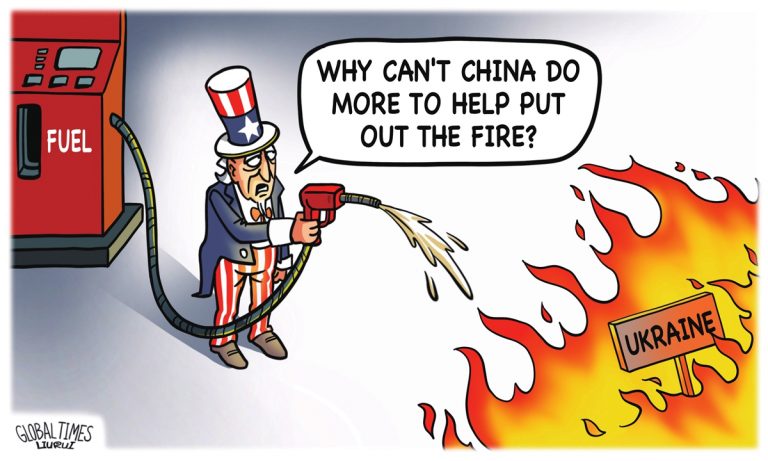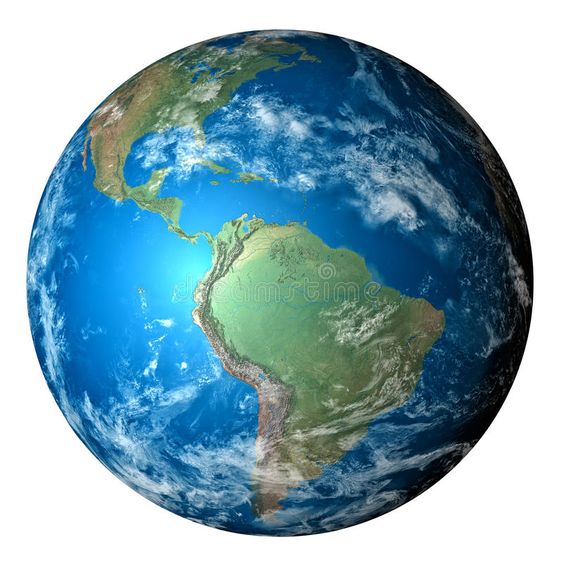
China has organized a multilateral initiative to stake its claim to replace the US as the major foreign power in Central Asia following the American retreat.
By Tom Arms
The Ukraine War continues to create tectonic shifts on the global diplomatic scene. This week it has helped Beijing stake its claim to Afghanistan and Central Asia as a Chinese sphere of influence.
Also in Asia, New Delhi has become the center of diplomatic ferment as East and West bid for support from the South Asian giant.
At the same time, the EU has ditched its “talk about trade only” policy with China to join the US in pressuring Xi Jinping to come out against the war.
In the meantime, Putin has turned the energy screws on Europe by demanding that they pay for his gas in ruble in order to support the sanctions-damaged currency.
The move has been welcomed by Beijing who think that the Western alliance will collapse in the face of the energy crisis. The EU and U.S however, remain united in demanding that China must not help Russia circumvent sanctions, climb off its rickety fence, and act like a responsible global power with a stake in the world order, and pressure Putin to stop the killing in Ukraine.
But let’s start first in Afghanistan and central Asia where China has organized a multilateral initiative to stake its claim to replace the US as the major foreign power in Central Asia following the American retreat.
The diplomatic maneuverings started last week with a visit to Kabul by Chinese delegation led by Foreign Minister Wang Yi. The acting Afghan Foreign Minister Amir Khan Muttaqi described his guests as “the most important high-level delegation received by Afghanistan.”
He was right, as Wang Yi promised support and immediately followed it up this week with a Central Asian summit to organize Chinese-led multilateral support “to—according to the Chinese—“jointly stabilize the situation”. In attendance were the foreign ministers of Iran, Pakistan, Turkmenistan, Uzbekistan, Kyrgyzstan, and most interesting, Sergei Lavrov from the Kremlin, who took a break from Ukrainian problems to play the role of junior partner to the Chinese.
So, basically, exit America and its Western Allies from Afghanistan and central Asia and enter the Chinese with a little bit of help from the Russians.
Meanwhile, a bit further to the south, New Delhi has been trampled by a virtual diplomatic stampede as Americans, Europeans, Chinese and Russians have descended on the Indian capital in an attempt to lure the government of Narendra Modi into one of the new Cold War camps.
In the last week high-ranking delegations have been sent from Germany, Mexico and Greece. The US dispatched Under Secretary of State Victoria Nuland and Deputy National Security Adviser Daleep Singh and on Wednesday Secretary of State Antony Blinken had a lengthy telephone conversation with his Indian counterpart Subramanyan Jaishanker.
British Foreign Secretary Liz Truss also flew into Delhi at the same time as her Russian counterpart Sergei Lavrov was in town and only a few days after a surprise visit by Wang Yi.
India’s neutral position on Ukraine is a major spanner in the West’s efforts to secure a united condemnation of Russia’s invasion of Ukraine. With a population of a billion, a growing economy and a reputation as a developing world leader, India’s support on Ukraine is invaluable. The lack of it also threatens a key element of Washington’s Asia policy—the anti-Chinese defensive Quad Alliance of India, Japan, Australia and the US. This week, the government of Narendra Modi tilted more to Moscow’s position by buying Russian oil at heavily discounted prices.
Diplomats point out that India has had close relations with Moscow since the early days of the Cold War and that 85 percent of its weapons are still provided by the Russians. The government’s officially neutral with a Moscow tilt policy also provides Delhi with a diplomatic lever in relations with the Biden Administration. It is likely that they will use it to extract concessions from the US and EU over issues such as Kashmir, favorable trade deals and more weapons supplies from the Western camp.
The Chinese position, meanwhile, is coming under increasing attack from both the EU and the US. Last week President Biden told Xi Jinping in a lengthy telephone conversation that helping Putin would result in “consequences” for China. The US president later told the NATO summit that the Chinese leader realized that his country’s economic interests lay with the West rather than Russia.
On Friday European Commission President Ursula von der Leyen and EU Council President Charles Michel held a video conference with Xi Jinping. The meeting was not originally scheduled to be at summit level. The two sides had planned a simple discussion of trade issues. In fact, hard cash rather than politics has for more than 20 years been the motivating factor in EU relations with China. That has dramatically changed with Ukraine and the EU demanded a session with Xi to make this clear.
Putin’s war has forced the EU to flex its previously under-utilized political muscles to protect its economic and security interests. This will have a major impact on its policy towards China and bring it much closer to the American position.
- The jury is out on the value of French President Emmanuel Macron’s numerous and lengthy telephone/zoom/face to face talks Vladimir Putin. Some diplomats claim that he is providing a valuable role in keeping open the lines of communication between NATO and the Kremlin. Others maintain that his talks have given Putin a totally undeserved credibility. Either way, the Vlad-Emmanuel chats do not appear to have had a great impact Macron’s re-election hopes as the French presidential campaign swings towards the final week before the first round on 10 April. Macron has been the favorite for the past six months, but this week he dropped a percentage point from 28 to 27 percent of the expected first round vote and his chief rival Marine Le Pen climbed from 18 percent to 20. Pollsters, however, still give the incumbent the advantage in the 24 April second round, but it has narrowed to 52-53 percent of the vote. Right-winger Ms Le Pen has clearly had some success in de-demonizing her National Rally Party. She has been helped by the candidacy of the extreme right-winger Eric Zemmour who wants to deport 100,000 Muslims a year. Ms Le Pen has successfully shifted the focus of her campaign from the traditional issue of immigration to the cost of living crisis. This has put her in a position to pick up second round votes from the left of the French political spectrum with her economic policy and votes from the right with her slightly more acceptable anti-immigration policies. However, Macron has also had some recent successes. In January, the French economy has its biggest every monthly jump as it bounced back from the pandemic and he has managed to reduce unemployment to 7.4 percent.
- Reports emanating from Britain’s MI6 and GCHQ and America’s CIA and National Security Agency are in total agreement—Putin goofed. He completely miscalculated the resolve of the Ukrainian people and the Western Alliance and the ability of his own military forces. But according to the spy chiefs, it gets even worse. The Russian president has surrounded himself with advisers who are terrified of telling him the truth. The result is that his decision to invade was made on the basis of intelligence which fitted the prejudices and political beliefs of Putin rather than the facts. Furthermore, that the Russian president is likely to be continuing to receive false information because his advisers are frightened of ending up in a Siberian gulag at best and poisoned by novichok or polonium at worst. Fear of the president, however, does not extend to a number of Russian troops on the ground according to the same intelligence sources. There are reports of Russian soldiers refusing to fire on Ukrainian military and even using their weapons to shoot down Russian planes and helicopters. The result is that Putin has turned on his generals who are becoming increasingly annoyed with the president’s efforts to shift the blame to their shoulder epaulettes.
- One group has benefitted from the Ukraine war—the American military. President Joe Biden has this week put before Congress the highest-ever proposed defense budget– $733 billion. That is more than the combined defense budgets of Russia and China and three times what Beijing spends on its military. It will pass. In fact, Congress is likely to tack even more money onto it. Last year, Biden asked for $715 billion and Congress gave him $756 billion. The reason for the extra jump is that the president is effectively fighting on two fronts—Europe and Asia, when he would prefer to be focused more on Asia. This may change in the next few years as the German decision to increase its defense spending to two percent of GDP starts to take effect. As for the president’s commenting about “regime change” in the Kremlin. Of course, he wants regime change. So does every other Western leader who has claimed they don’t. Was he wrong to say so. You betcha. Putin invaded Ukraine to effect regime change. We know this because he said so. One of the West’s reasons for opposing Putin was his stated aim of using his army to interfere in the domestic politics of another country to force regime change. To claim that the US wants regime change in the Kremlin loses it the moral high ground and opens Biden to a charge of hypocrisy. But seriously, it is unlikely that the Ukraine and its Western backers can win as long as Vladimir Putin is president of Russia.
- Countries fight for the right to host major sporting events because it gives them the opportunity to showcase their country which brings in tourists, trade and a feeling of pride among their own population. Qatar’s hosting of the 2022 World Cup may prove to be exception to the rule. The spotlight won’t be shining so much on their seven new stadiums, new airport, new metro and new roads as it will be on the migrant workers who died building these facilities and the gay men and women who may be banned from using them. According to The Guardian 6,500 migrant workers (mainly from South Asia and the Philippines) have died in Qatar since the Gulf country won its bid to host the World Cup. Qatar says the figure is actually 37, just about every human rights organization disagrees. 30,000 migrants have worked on building the infrastructure for the World Cup and it’s universally agreed (except by the ruling al-Thani family) that they live in appalling conditions and are paid next to nothing. Then there is the gay community in Qatar. Officially there isn’t one. Homosexuality is a criminal offense in Qatar. Set against this the fact that FIFA (International Federation of Association Football) and the European club football scene is heavily focused on inclusivity and using sport to lead from the moral high ground. The scene is set for a cash. Both Norway and the Netherlands have considered a boycott. This week it was considered and rejected by England Manager Gareth Southgate, but he gave his blessing to the efforts of England Captain Harry Kane who is liaising with his counterparts elsewhere in Europe to coordinate ways to spotlight Qatar’s failings. The 2022 World Cup is more likely to be a showcase for the rights of gay people and migrant workers than showcase for Qatari tourism.
_______________
 Tom Arms is the foreign editor of Liberal Democrat Voice. He is also author of The Encyclopedia of the Cold War and the recently published America Made in Britain which sold out in the US after six weeks but is still available in the UK.
Tom Arms is the foreign editor of Liberal Democrat Voice. He is also author of The Encyclopedia of the Cold War and the recently published America Made in Britain which sold out in the US after six weeks but is still available in the UK.
